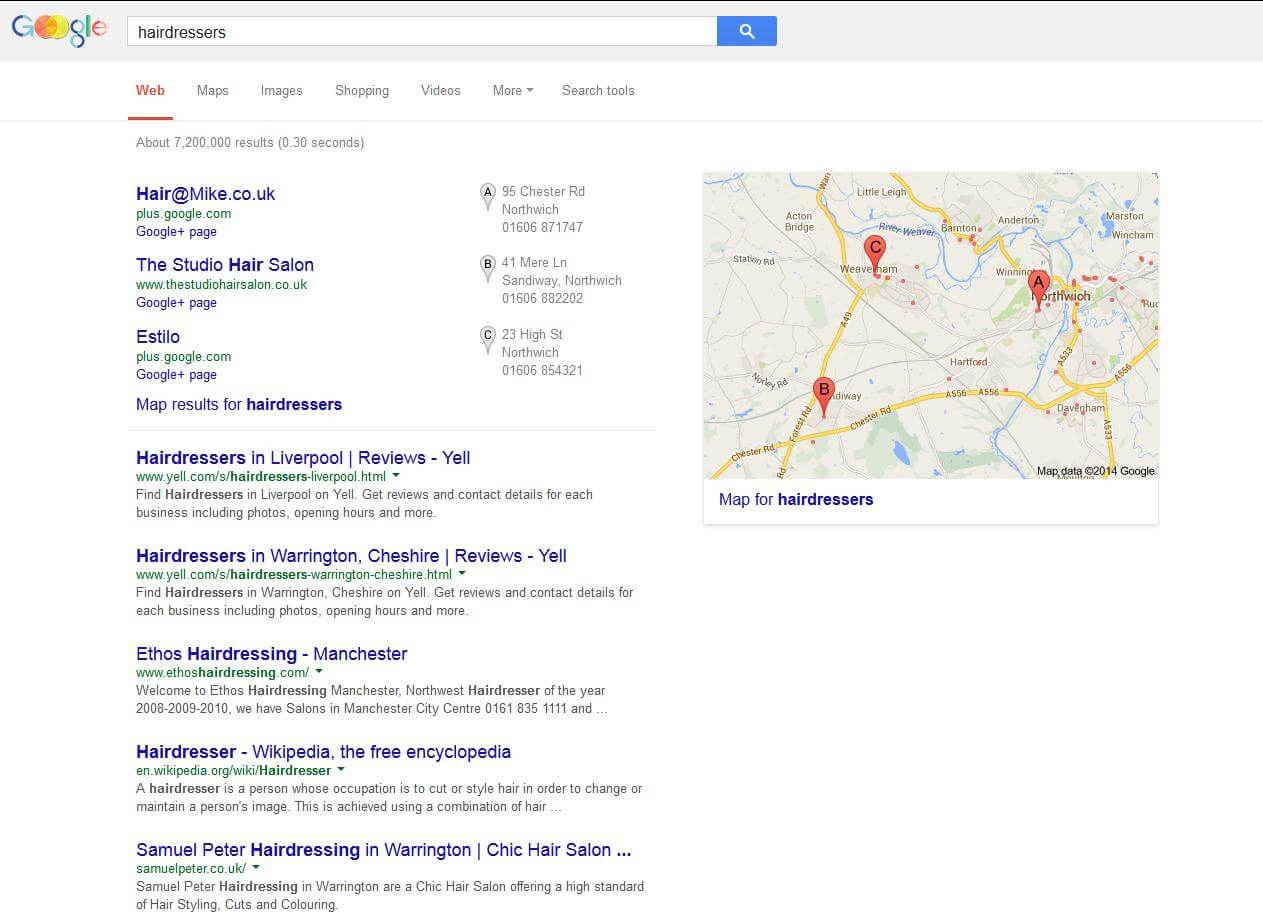Despite it seemingly taking over the world and the universe, Google is just as keen to get to know your neighbourhood. It wants to be that helpful man who stands on the corner of the road just waiting to be asked where the local post office is. Localisation is the theme of Google’s latest algorithm update; one so hush-hush that it hasn’t even been given a name yet.
Website Search Engine Land has filled in the gap and labelled the movement as ‘Pigeon’, following on the theme of ornithological algorithm update names like Penguin and Hummingbird. Since it’s centred on making location-based searching more straightforward and applying more sensible boundaries to its results, we imagine this is an allusion to the homing pigeon and its excellent sense of direction.
An early bungle picked up by Search Engine Land will have some webmasters concerned that it could be more a metaphor for what a pigeon is likely to do if flying over you, however. When Googling for ‘New York hotels’ last week, the travel website Expedia was actually listed as the name of a hotel. It looks like the issue was rectified swiftly by Google – hopefully before anybody suffered the disappointment of finding out that Expedia had no rooms available at its New York branch.
Teething problems are to be expected, but is it necessary for Google to place any further emphasis on location and using web signals to generate search results? Google already knows where you are, and uses it to get a grip of what you’re looking for. What does it need to improve on?
As a bit of an experiment, we Googled ‘hairdressers’ yesterday afternoon, just to see how well the search engine knows what’s in our vicinity. This was from our office in Ellesmere Port, which Google correctly identifies as being in the ‘Cheshire West and Cheshire’ area. Here’s what it came up with:
These could be better, to be perfectly honest. Northwich is indeed in the Chester West and Chester council authority, but is a half hour drive from Ellesmere Port. Other results crop up in Manchester, Warrington and Liverpool, so the site is clearly aware that we’re in the North West and is trying to bring up high-ranking results in the area, but there’s no sign of anything in Chester and is anyone round here really going to travel nearly 40 miles to Manchester for a haircut?
This perhaps brings up a further question of how prevalent the service being searched for is, and how far people are going to travel to visit it. For attractions like theme parks, National Trust sites and football grounds, it’s fair to assume that people will be willing to head to other cities to visit them, but this is less true for services like hairdressers, greengrocers and MOT centres, where people are by and large going to use the ones on their doorsteps, or within walking distance of the place they find themselves in.
Arguably, localised searching is most in the interest of industries like hotels, pubs, restaurants and other services that visitors to towns might need. You could make the point that most people already know where their nearest hairdressers are, and tourists are unlikely to stop for a hair appointment while on a day out. It’s more probable that people unfamiliar with a town will be in search of a bite to eat or something to drink, and this is where Google on mobile devices may be of interest to these industries.
At Engage Web, we always advise our clients to take their location into consideration and, as Google continues to work on its locally optimised results, there may yet come a day when it becomes much easier for the average SME to rank on the first page of Google’s results for a search of the name of their service – at least among the locally based searchers most likely to use it.
- How to find a circular reference on Excel - May 23, 2024
- Five life skills learned from internet marketing - January 3, 2024
- How artificial intelligence can (and can’t) help you write content - September 29, 2023



